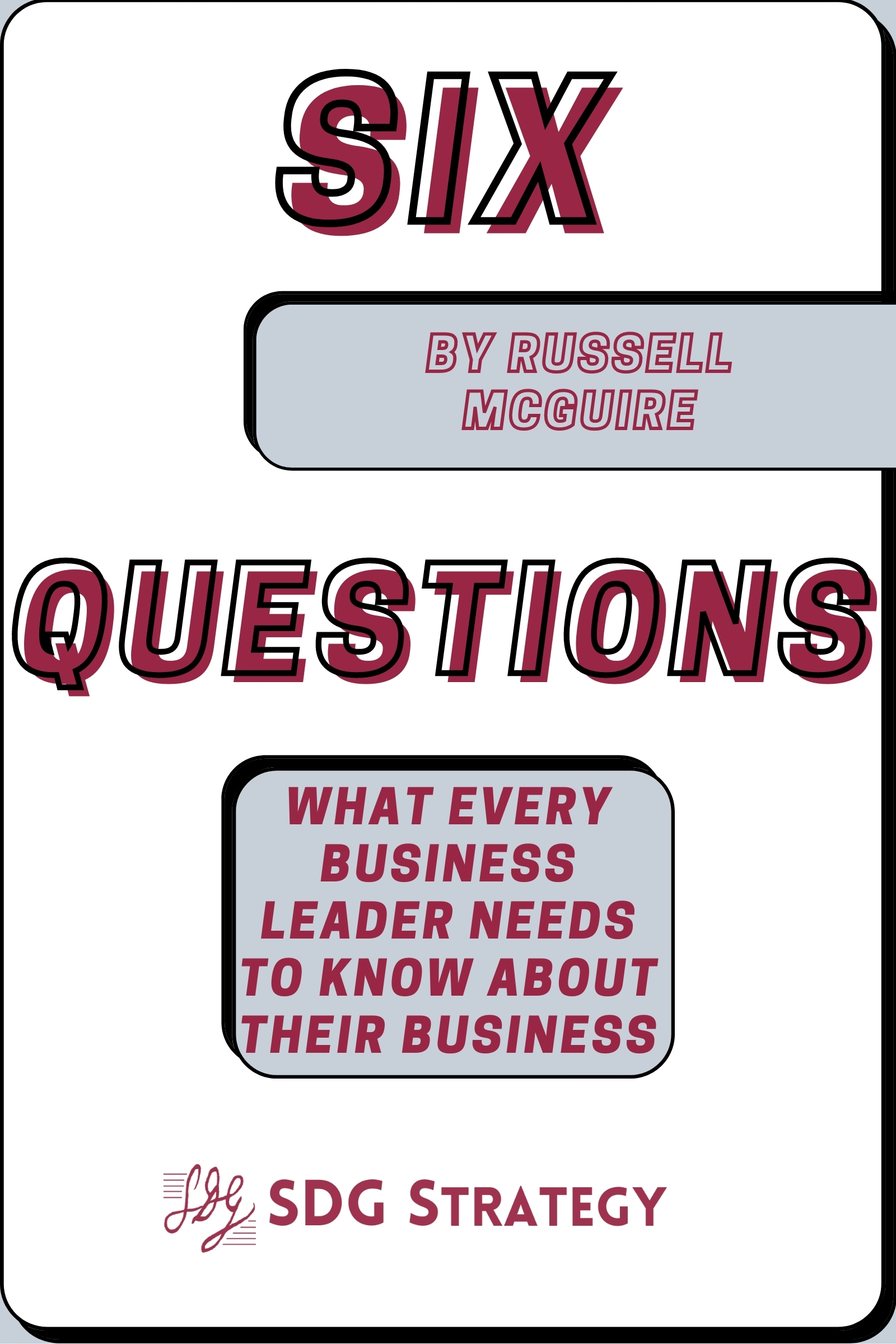New E-Book: Six Questions
I have just published a new eBook titled Six Questions: What Every Business Leader Needs to Know About Their Business.
Here’s the description:
Business success requires making hard decisions. Making hard decisions well requires a depth of understanding about the business and its environment that, unfortunately, many business leaders lack, or at least they haven’t formulated their understanding of the business into a framework that makes it easy to consistently and confidently apply.
In this book Russell McGuire asks six simple questions that any leader should be able to answer about their business. The answers to those six questions provide a mental framework that can help leaders navigate the challenges their organizations will undoubtedly face. But more than simply asking the questions, McGuire provides the tools and approaches leaders can use to thoughtfully develop the answers to those questions.
The book can be found many places where eBooks are available (and more channels are coming online daily).
New E-Book: Six Questions Read More »






